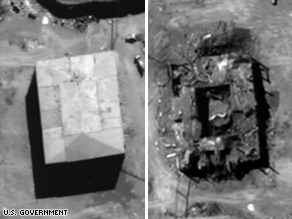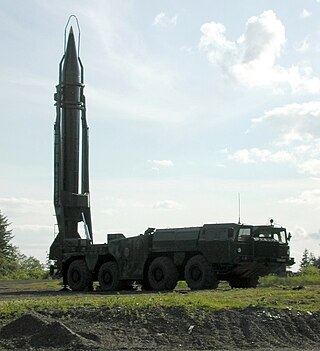Related Research Articles

The Treaty on the Non-Proliferation of Nuclear Weapons, commonly known as the Non-Proliferation Treaty or NPT, is an international treaty whose objective is to prevent the spread of nuclear weapons and weapons technology, to promote cooperation in the peaceful uses of nuclear energy, and to further the goal of achieving nuclear disarmament and general and complete disarmament. Between 1965 and 1968, the treaty was negotiated by the Eighteen Nation Committee on Disarmament, a United Nations-sponsored organization based in Geneva, Switzerland.

Nuclear proliferation is the spread of nuclear weapons, fissionable material, and weapons-applicable nuclear technology and information to nations not recognized as "Nuclear Weapon States" by the Treaty on the Non-Proliferation of Nuclear Weapons, commonly known as the Non-Proliferation Treaty or NPT. Proliferation has been opposed by many nations with and without nuclear weapons, as governments fear that more countries with nuclear weapons will increase the possibility of nuclear warfare, de-stabilize international or regional relations, or infringe upon the national sovereignty of nation states.

"State Sponsors of Terrorism" is a designation applied to countries that are alleged to have "repeatedly provided support for acts of international terrorism" per the United States Department of State. Inclusion on the list enables the United States government to impose four main types of unilateral sanctions: a restriction of foreign aid, a ban on weapons sales, heightened control over the export of dual-use equipment, and other miscellaneous economic sanctions. The State Department is required to maintain the list under section 1754(c) of the National Defense Authorization Act for Fiscal Year 2019, section 40 of the Arms Export Control Act, and section 620A of the Foreign Assistance Act.
In politics, hard power is the use of military and economic means to influence the behavior or interests of other political bodies. This form of political power is often aggressive (coercion), and is most immediately effective when imposed by one political body upon another of less military and/or economic power. Hard power contrasts with soft power, which comes from diplomacy, culture and history.

The Office of Foreign Assets Control (OFAC) is a financial intelligence and enforcement agency of the United States Treasury Department. It administers and enforces economic and trade sanctions in support of U.S. national security and foreign policy objectives. Under presidential national emergency powers, OFAC carries out its activities against foreign governments, organizations, and individuals deemed a threat to U.S. national security.
The Hwasong-7, also known as Nodong-1, is a single-stage, mobile liquid propellant medium-range ballistic missile developed by North Korea. Developed in the mid-1980s, it is a scaled-up adaptation of the Soviet R-17 Elbrus missiles, more commonly known by its NATO reporting name "Scud". The inventory is estimated to be around 200–300 missiles. US Air Force National Air and Space Intelligence Center estimates that as of June 2017 fewer than 100 launchers were operationally deployed.

United States sanctions are financial and trade restrictions imposed against individuals, entities, and jurisdictions whose actions contradict U.S. foreign policy or national security goals. Financial sanctions are primarily administered by the U.S. Department of the Treasury's Office of Foreign Assets Control (OFAC), while export controls are primarily administered by the U.S. Department of Commerce's Bureau of Industry and Security (BIS).

The United States and Russia maintain one of the most important, critical, and strategic foreign relations in the world. Both nations have shared interests in nuclear safety and security, nonproliferation, counterterrorism, and space exploration. Due to the Russian invasion of Ukraine, relations became very tense after the United States imposed sanctions against Russia. Russia placed the United States on a list of "unfriendly countries", along with South Korea, Taiwan, European Union members, NATO members, Switzerland, Australia, New Zealand, Singapore, Micronesia, Japan and Ukraine.

The Fajr-3 is an Iranian heavy 240 mm intermediate-range multiple-launch artillery rocket (MLRS). The Fajr-3 is a license-built copy, with slight modifications, of a North Korean MLRS called the M-1985. The Fajr-3 was introduced in the 1990s and has since been exported to Hamas and Hezbollah.

Operation Outside the Box, also known as Operation Orchard, was an Israeli airstrike on a suspected nuclear reactor, referred to as the Al Kibar site, in the Deir ez-Zor region of Syria, which occurred just after midnight on 6 September 2007. The Israeli and U.S. governments did not announce the secret raids for seven months. The White House and Central Intelligence Agency (CIA) subsequently confirmed that American intelligence had also indicated the site was a nuclear facility with a military purpose, though Syria denies this. A 2009 International Atomic Energy Agency (IAEA) investigation reported evidence of uranium and graphite and concluded that the site bore features resembling an undeclared nuclear reactor. IAEA was initially unable to confirm or deny the nature of the site because, according to IAEA, Syria failed to provide necessary cooperation with the IAEA investigation. Syria has disputed these claims. Nearly four years later, in April 2011 during the Syrian Civil War, the IAEA officially confirmed that the site was a nuclear reactor. Israel did not acknowledge the attack until 2018.

The Iran Nonproliferation Act of 2000 is a United States Act of Congress signed into law by President Bill Clinton on March 14, 2000. The act authorizes the President of the United States to take punitive action against individuals or organizations known to be providing material aid to weapons of mass destruction programs in Iran.
The Hwasong-6 is a North Korean tactical ballistic missile. It is derived from the Hwasong-5, itself a derivative of the Soviet R-17 Elbrus. It carries the NATO reporting name Scud.

A Scud missile is one of a series of tactical ballistic missiles developed by the Soviet Union during the Cold War. It was exported widely to both Second and Third World countries. The term comes from the NATO reporting name attached to the missile by Western intelligence agencies. The Russian names for the missile are the R-11, and the R-17Elbrus. The name Scud has been widely used to refer to these missiles and the wide variety of derivative variants developed in other countries based on the Soviet design.

United Nations Security Council Resolution 1874 was adopted unanimously by the United Nations Security Council on 12 June 2009. The resolution, passed under Chapter VII, Article 41, of the UN Charter, imposes further economic and commercial sanctions on the Democratic People's Republic of Korea and encourages UN member states to search North Korean cargo, in the aftermath of an underground nuclear test conducted on 25 May 2009.
Jeffrey Lewis is an American expert in nuclear nonproliferation and geopolitics, currently a professor at the James Martin Center for Nonproliferation Studies at the Middlebury Institute of International Studies at Monterey, and director of the CNS East Asia Nonproliferation Program. He has written two books on China's nuclear weapons, and numerous journal and magazine articles, blog posts, and podcasts on nonproliferation and related topics.
China National Electronics Import & Export Corporation (CEIEC) is a Chinese state owned enterprise in diversified business areas. It is one of a handful of defense trading companies authorized to represent the domestic defense production industries in overseas sales, concentrating on sales of defense electronics. It is also in construction engineering specializing in construction of civil infrastructure. By international contracting revenue the company is ranked among the top 250 contractors in the 2015 Top 250 International Contractors published by Engineering News Record. From 2006 to 2008, CEIEC was sanctioned for violations of the Iran, North Korea, Syria Nonproliferation Act. In November 2020, the United States Department of the Treasury levied additional sanctions on CEIEC.
U.S. foreign policy during the presidency of Donald Trump (2017–2021) was noted for its unpredictability and reneging on prior international commitments, upending diplomatic conventions, embracing political and economic brinkmanship with most adversaries, and stronger relations with traditional allies. Trump's "America First" policy pursued nationalist foreign policy objectives and prioritized bilateral relations over multinational agreements. As president, Trump described himself as a nationalist while espousing views that have been characterized as isolationist, non-interventionist, and protectionist, although the "isolationist" label has been disputed, including by Trump himself, and periods of his political career have been described by the alternative term “semi-isolationist.” He personally praised some populist, neo-nationalist, illiberal, and authoritarian governments, while antagonizing others, even as administration diplomats nominally continued to pursue pro-democracy ideals abroad.

The Countering America's Adversaries Through Sanctions Act (CAATSA) is a United States federal law that imposed sanctions on Iran, North Korea, and Russia. The bill was passed by the Senate on July 27, 2017, 98–2, after it passed the House 419–3. It was signed into law on August 2, 2017, by President Donald Trump, who nevertheless believed that the legislation was "seriously flawed".

The Art of Sanctions: A View from the Field is a 2017 book written by Richard Nephew. It discusses the role of sanctions as a foreign policy tool. Nephew argues about interpreting targets' responses to sanctions based on two critical factors: pain and resolve. When sanctions have achieved maximum effectiveness that lies in the application of pain against a target, but targets may have significant resolve to resist, tolerate, or overcome this pain. The author believes that sanctions have achieved maximum effectiveness resulted Joint Comprehensive Plan of Action.

North Korea–Syria relations have been very strong and close since the 1960s, when North Korea provided military assistance to Syria in its wars with Israel. Both states maintain embassies in the other country's respective capitals.
References
- ↑ "Iran, North Korea, and Syria Nonproliferation Act: Imposed Sanctions". Archived from the original on 2023-04-06. Retrieved 2019-05-27.